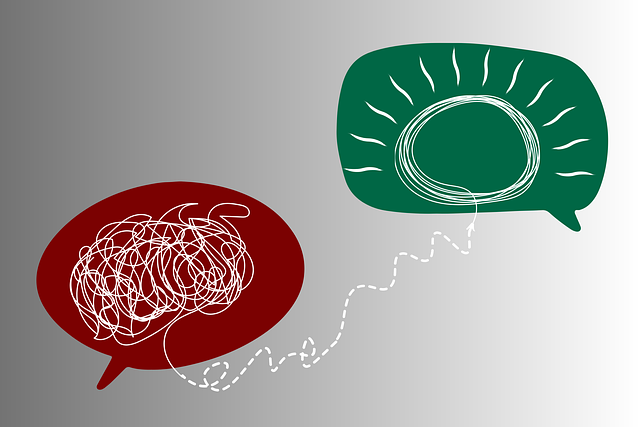Burnout among healthcare providers is a growing concern, but early intervention through structured assessments like Denver Mental Health Evaluations (DMHE) can mitigate this issue. Key indicators of burnout, such as emotional exhaustion and reduced personal accomplishment, are identified through DMHE therapy, enabling institutions to support providers' mental wellness before escalation. Regular DMHE evaluations, coupled with stress management techniques, promote a culture that prioritizes resilience and work-life balance in Denver's fast-paced mental health environment. This holistic approach ensures healthcare professionals maintain dedication and quality patient care while fostering a supportive atmosphere through self-care practices and cultural sensitivity training.
In today’s demanding healthcare landscape, burnout among providers is a growing concern. This article explores evidence-based strategies to combat burnout in therapy settings, particularly using the Denver Mental Health Evaluations (DMHE) perspective. We delve into recognizing signs and symptoms, creating supportive work environments, and fostering self-care practices for Denver therapists. By implementing these strategies, mental health professionals can enhance resilience and well-being, ensuring they remain effective and compassionate caregivers.
- Understanding Burnout in Healthcare Providers: The Denver Mental Health Evaluations Perspective
- Recognizing the Signs and Symptoms of Burnout
- Evidence-Based Strategies to Prevent Burnout in Therapy Settings
- Creating a Supportive Work Environment for Mental Health Professionals
- Self-Care Practices for Denver Therapists: Nurturing Resilience and Well-Being
Understanding Burnout in Healthcare Providers: The Denver Mental Health Evaluations Perspective

Burnout among healthcare providers is a growing concern within the medical community. Recognizing and understanding burnout is the first step towards prevention. The Denver Mental Health Evaluations (DMHE) framework offers a structured approach to assessing mental health status, particularly focusing on anxiety relief and trauma support services. This methodically evaluates various aspects of an individual’s well-being, including emotional exhaustion, depersonalization, and reduced personal accomplishment—key indicators of burnout.
The DMHE therapy perspective emphasizes the importance of early intervention and proactive measures. By incorporating regular mental health evaluations into healthcare provider routines, institutions can identify signs of distress before they escalate. This approach not only facilitates targeted interventions but also promotes a culture that prioritizes mental wellness. Ultimately, addressing burnout through tools like Denver Mental Health Evaluations is essential for ensuring healthcare providers maintain their resilience and passion in delivering quality patient care.
Recognizing the Signs and Symptoms of Burnout

Burnout is a significant concern within the healthcare industry, impacting both professionals’ well-being and patient care quality. Recognizing the signs early is crucial to preventing this state. Healthcare providers often exhibit physical and emotional exhaustion, detachment from work, and reduced professional efficacy. Common symptoms include chronic fatigue, insomnia, decreased productivity, irritability, and a sense of cynicism towards patients or colleagues. These indicators may be subtle at first, but if left unaddressed, they can lead to more severe consequences, such as increased absenteeism, impaired decision-making, and even physical health issues.
In Denver, access to mental health evaluations and therapy services plays a vital role in supporting healthcare workers. Through comprehensive assessments, professionals can identify underlying issues contributing to burnout. Therapy, especially incorporating techniques like Mind Over Matter principles and Inner Strength Development, offers valuable tools for managing stress and anxiety relief. By engaging in these practices, healthcare providers can enhance their resilience, improve work-life balance, and ultimately prevent burnout, ensuring they remain dedicated and effective in delivering quality patient care.
Evidence-Based Strategies to Prevent Burnout in Therapy Settings

In the fast-paced world of Denver mental health evaluations therapy, burnout among healthcare providers is a growing concern. To combat this issue, evidence-based strategies are essential to foster a healthier work environment and sustain the quality of care. One effective approach involves incorporating comprehensive risk assessments for mental health professionals, which can identify early signs of stress and potential burnouts. By conducting regular screenings and implementing targeted interventions, therapy settings can proactively support their staff.
Additionally, promoting positive thinking and integrating public awareness campaigns development can significantly contribute to burnout prevention. Encouraging therapists to practice self-care, set boundaries, and engage in ongoing professional development helps build resilience against the demands of their noble profession. These strategies collectively create a culture of well-being within therapy settings, ensuring that mental health professionals can thrive while providing optimal care for their clients in Denver.
Creating a Supportive Work Environment for Mental Health Professionals

Creating a supportive work environment is paramount in preventing burnout among mental health professionals. In Denver, where access to therapy and mental health evaluations is crucial, healthcare providers can foster a culture that prioritizes well-being. This involves ensuring adequate resources and support systems for staff, promoting open communication channels for expressing concerns or challenges, and encouraging regular breaks and work-life balance. A safe, supportive environment enhances job satisfaction and resilience among mental health professionals.
Cultural sensitivity in mental healthcare practice plays a significant role in creating this conducive atmosphere. Burnout prevention strategies should encompass training in cultural competence to help professionals navigate diverse patient backgrounds and tailor their approaches accordingly. Social skills training is another effective method, enhancing interpersonal interactions both within the team and with clients, ultimately contributing to a more positive and engaging work environment.
Self-Care Practices for Denver Therapists: Nurturing Resilience and Well-Being

In the fast-paced world of Denver mental health evaluations and therapy, burnout is a significant concern among healthcare providers. To combat this, therapists must prioritize self-care practices that nurture resilience and overall well-being. Regular engagement in activities that promote mental wellness, such as journaling and exercise guidance, can serve as powerful tools for depression prevention and emotional intelligence development. By dedicating time to these practices, therapists can enhance their ability to connect with clients, improve treatment outcomes, and sustain a healthy work-life balance.
Incorporating self-care routines into daily life is essential for maintaining optimal mental health. Denver therapists can benefit from establishing structured periods for reflection and physical activity. For instance, keeping a mental wellness journal can provide an outlet for processing complex emotions and experiences, fostering emotional intelligence. Additionally, incorporating guidance for specific exercises, like mindfulness or light cardio, offers practical ways to reduce stress and alleviate burnout symptoms. These proactive measures empower therapists to show up fully for their clients while safeguarding their own mental health and resilience.
Burnout among healthcare providers, particularly therapists in the Denver Mental Health Evaluations therapy setting, is a pressing issue that demands proactive strategies. By recognizing the signs and symptoms early on, implementing evidence-based practices to prevent burnout, fostering supportive work environments, and encouraging self-care, we can create a healthier, more resilient workforce. Adopting these strategies not only benefits individual therapists but also enhances patient care and overall organizational success in Denver mental health evaluations therapy settings.













